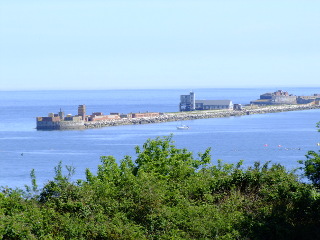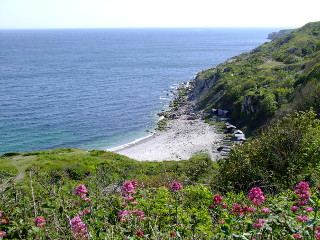Church Ope Cove Pirates Graveyard Picture
Picture of - 'Church Ope Cove Pirates Graveyard'
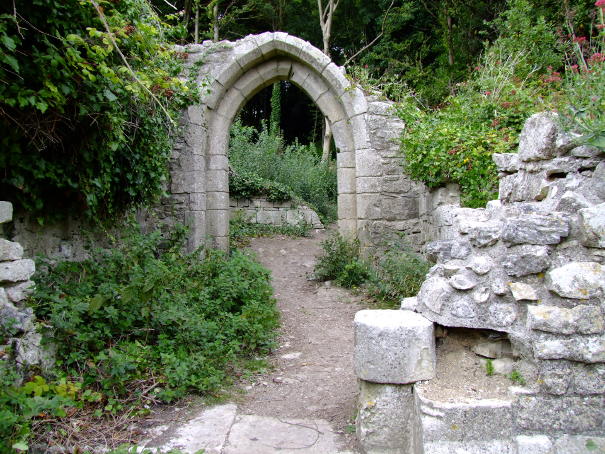
< < < -- Back to Discovering Portland -- < < <
Portland Pirates Graves - Church Ope Cove
The ruins of St Andrews Church stand high above Church Ope Cove on the Isle of Portland (some of the ruins are shown in the picture above). Smuggling and Piracy was once a common practice along these shores. The infamous 15th century pirate Harry Paye came from nearby Poole and the classic smuggling tale 'Moonfleet' was set just down the road in the village of Fleet. When one sees the skull and crossbones displayed on an ancient gravestone in a long ago abandoned churchyard above a secluded cove on Portland, they may well think they have stumbled upon a pirates grave. This is the reason why so many people call St Andrews Churchyard, 'Portland Pirates Graveyard' or 'Church Ope Cove Pirates graveyard'.
Church Ope Cove Pirate's Graveyard
St Andrews church was the first church on Portland, built around 1100 to replace an even earlier church. When you tread on this ground, you are walking in the footsteps where Portland inhabitants have worshipped for over 1000 years. The ruins that we see today stand above Church Ope Cove, having been destroyed by French Pirates and landslips, although rebuilt, the church was finally abandoned in the 1700s when St Georges Church was built further inland. The Picture above shows the ruins of the bell tower archway which likely dates back to the 1400s. In the graveyard are some monuments including one showing the skull and crossbones which created the legend of 'Portland Pirates Graveyard'. Portland Museum, which is close to Church Ope Cove has saved many of the stones from St Andrews Church if you want to see more history on Portlands first church.Portland Pirates Graveyard - did Pirates really live on Portland?
The Skull and Crossbones was often displayed on gravestones of this era and the tomb in this graveyard wouldn't have belonged to a pirate. However, Dorset was home to pirates such as the 15th century pirate Harry Paye of Poole. Pirates from France attacked Church Ope Cove and destroyed St Andrews Church in both the 1300s and 1400s so the local population would have been aware of the dangers from pirates around the shores. Smuggling was also a very popular activity and its highly likely that a small secluded cove like Church Ope Cove would have been the ideal place for smugglers to bring their loot ashore.Where is Church Ope Cove Pirates Graveyard
Portland Pirates Graveyard can be found by following the footpath past Portland museum to church Ope Cove, once at the viewing point above the cove, follow the steps down towards the beach and you will see the sign to St Andrews church, follow the steps up and you will find yourself in the Church Ope Cove pirates graveyard. There are many steps and they are pretty steep.Church Ope Cove Parking
Church Ope can be found as you drive from Easton Square down towards Portland Bill on the left hand side. There is on street parking from which a short walk will take you down a little alleyway with the remains of Rufus castle high above you. Here you will find the beautiful Church Ope Cove viewing point. From here you can either follow the coastal path to the left or walk down the steps to the beach itself. The 'Pirates Graveyard' is located about halfway down.More about Church Ope Cove
Church Ope Cove Pirates graveyard is one of Church Ope Coves hidden secrets but this is a wonderful place to visit for a walk, a picnic or just a place to enjoy the peace and quiet. Click here to read more about Church Ope Cove.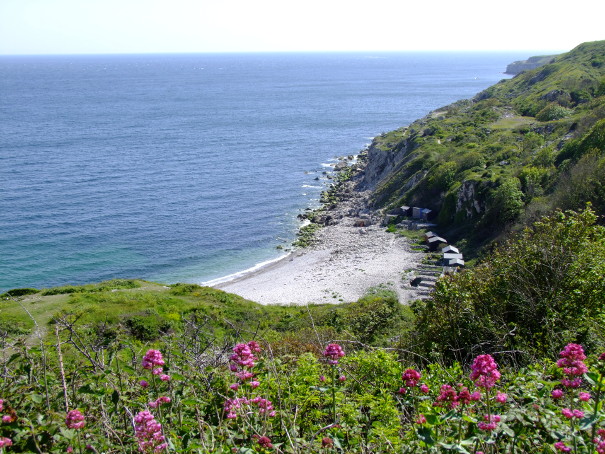

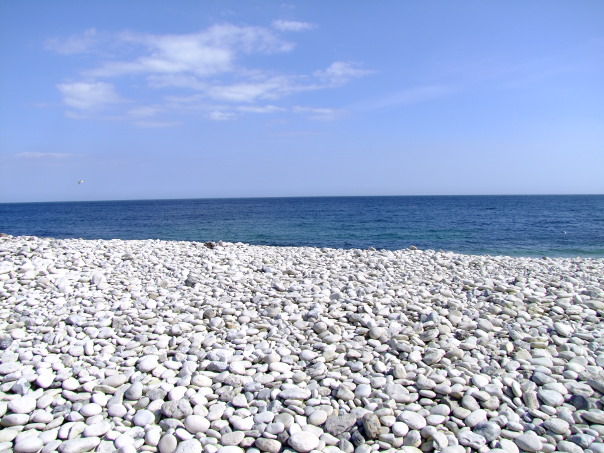
View more things to do in Weymouth
Visit the Nothe Fort
The Nothe Fort is a victorian fort now a museum of life in Weymouth during world war II.
The Nothe Fort is a victorian fort now a museum of life in Weymouth during world war II.
Pirate Graves Church Ope Cove
The Pirates Graveyard at Church Ope Cove on Portland is found high above Church Ope Cove.
The Pirates Graveyard at Church Ope Cove on Portland is found high above Church Ope Cove.
Tyneham Ghost village
Tyneham Ghost Village is a deserted village.
Tyneham Ghost Village is a deserted village.
Things to do in Weymouth in the rain
There are plenty of things to do in Weymouth when it rains and lots more things to do around Dorset too.
There are plenty of things to do in Weymouth when it rains and lots more things to do around Dorset too.
Weymouth History
Did you know that the Black Death arrived in England in 1348 through the port of Weymouth.
Did you know that the Black Death arrived in England in 1348 through the port of Weymouth.
Portland Harbour, Breakwaters and HMS Hood
Portland Harbour History, the Portland Breakwaters, the sinking of HMS Hood and Portland at war.
Portland Harbour History, the Portland Breakwaters, the sinking of HMS Hood and Portland at war.
Just Weymouth - Disclaimer
